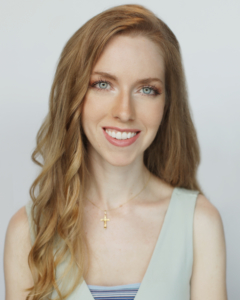Shape Up Your Writing Routine
by Sarah Archer
 Right now, many of us are taking on New Year’s fitness resolutions, as visions of last month’s sugarplums still dance in our heads. But don’t neglect a key body part: your brain. Want a simple way to optimize your writing habits? Think about your cognitive health like your physical health.
Right now, many of us are taking on New Year’s fitness resolutions, as visions of last month’s sugarplums still dance in our heads. But don’t neglect a key body part: your brain. Want a simple way to optimize your writing habits? Think about your cognitive health like your physical health.
Variety. If all you ever do are squats, you might have killer glutes… but not much else. And while dedication to one form of writing may make you a subject expert, you will be a stronger writer overall with variety in your routine. Think the writing equivalent of yoga, pilates, HIIT: rotate. For me, screenwriting provides principles of story and structure that I can apply to my fiction. Fiction writing encourages me to infuse my screenplays with voice and populate them with layered characters. And poetry unleashes a deeper creative energy. Push yourself to try a new media or genre. Take a class in another form of writing, find inspiration in prompts, or experiment with a short piece for fun.
Consistency. You wouldn’t look for a miracle six-pack after one workout (okay, maybe a hopeful peek). Have patience with your writing, too. Honing your craft is a lifelong process, and writing regularly is vital. If you train like an Olympian for a week, then take a month off, your efforts won’t go very far. Write as close to daily as you can manage so you can continually build.
Rest. Consistency is important, but so are breaks. Rest periods between cardio sets allow you to push yourself fully when you are in motion. Sometimes your brain needs the same thing. After a few hours of writing, my mind starts to rebel. If I go do something else, I can come back with refreshed focus. Often I get my best story ideas while doing mindless tasks which allow my subconscious to roam, like washing the dishes or showering. And don’t forget the brain benefits of sleep!
Community. I love working out at home alone—it is nobody’s business what I look like doing a burpee—but trainers on YouTube make those workouts possible. Just like online or personal trainers can help you construct a workout regimen, you shouldn’t expect yourself to write without input from instructors, editors, and beta readers. Many people also find they work out harder in a group setting like a class than alone. Accountability is just as valuable for writers. Consider finding a writers’ group or an accountability partner to help you meet your progress goals.
Diet. They say fitness starts in the kitchen. Likewise, your writing time will be better spent if you make time for reading, too. Not just any reading, but ingesting “healthy” content: reading writers who challenge you, and who are writing how you want to write. Just like one cookie won’t wreck your body, one episode of Real Housewives isn’t going to trash your mind. But aiming overall for a balanced and nutritious “mental diet” will keep your most important writing instrument sharp.
Sarah Archer’s debut novel, The Plus One, was published by Putnam in the US and received a starred review from Booklist. It has also been published in the UK, Germany, and Japan, and is currently in development for television. She is a Black List Screenwriting Lab fellow who has had material produced for Comedy Central, developed scripts with several companies, placed in competitions including the Motion Picture Academy’s Nicholl Fellowship and the Tracking Board’s Launch Pad, and published short stories and poetry in numerous literary magazines. After working in TV and film development in Los Angeles, she moved between six cities in three countries in the course of a few years. She currently lives in North Carolina.
Screenwriting Workshop: Going Deeper into Script Writing: This class is a crash course in the basics of screenwriting: the differences between writing for film and television, using software to help with script formatting, the power and pitfalls of visual storytelling and how to harness it to your advantage, the importance of structure and how to build momentum within and between scenes, and the impact of practical considerations like budget and audience on the creative process. We’ll also review the legitimacy of avenues for getting your script out there, including contests, screenwriting websites, and querying managers, and suggest approaches for pitching your work. The course will serve writers who are interested in learning how to put stories on screen, regardless of their experience with other forms of writing. Two Tuesdays, February 7, 14, 21 | 6:00-8:00 pm. Members $135, Non-Members $180. Register
